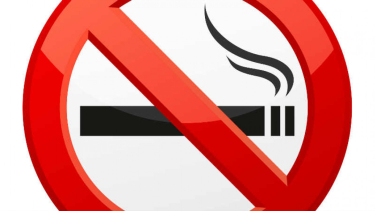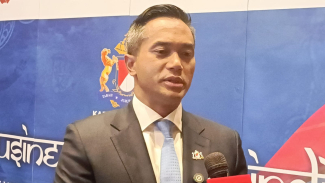The Reason Why New Zealand Cancels Its Plan to Ban Smoking
- iStockphoto.
Jakarta – New Zealand government has cancelled its plan of the world's first generational smoking ban, a year after the country passed the legislation.
The law, introduced under the previous Jacinda Ardern-led government, will ban the sale of cigarettes next year for anyone born after 2008.
Ilustrasi merokok.
- Pixabay/karosieben
Smoking is the leading cause of preventable death in New Zealand, and the policy aims to stop younger generations from starting the habit.
Health experts were shocked and strongly criticized the sudden cancellation.
"We are shocked and disgusted, this is a tremendous step backwards towards excellent, world-leading health measures," said Prof. Richard Edwards, tobacco control researcher and public health expert at the University of Otago.
"Most health groups in New Zealand are shocked by the government's actions and are asking them to back off," Edwards continued.
Ilustrasi dilarang merokok.
- Freewallpaper
The law passed last year has been internationally recognized with a research model that supports key reforms.
Measures taken include limiting the number of tobacco retailers and reducing nicotine levels in cigarettes. Modeling shows that the Smoke-Free law could save up to 5,000 lives each year.
The New Zealand law is believed to have inspired the United Kingdom government in September to announce a similar ban for young people. A spokesperson said that Prime Minister Rishi Sunak's position remains unchanged after New Zealand's setback.
It's known that in 2022, the country passed a pioneering law introducing an ever-increasing smoking age to stop those born after 2008 from being able to legally buy cigarettes. The law is designed to prevent thousands of smoking deaths and save the health system billions of dollars.
The law was originally set to be implemented from July 2024. But as part of a coalition agreement with populist group New Zealand First National agreed to repeal the amendments, including "removing the de-nicotization requirement, removing the retail outlet reduction, and the power plant ban."
The Treasury Department's pre-election fiscal update stated that the reduction in the number of stores that can sell tobacco products, and a series of restrictions would significantly reduce state revenue, the New Zealand government said.
"Reflecting on the additional revenue sources and other areas of savings that will help us fund the tax reductions, we must remember that the changes to the smoke-free laws have a significant impact on the Government's books, with around $1 billion in them,"
The New Zealand government said that their coalition partners, Act and New Zealand First, were "adamant" about scrapping the restrictions.
Prime Minister Christopher Luxon said the scrapping would prevent the emergence of a hidden tobacco market and stop shops being targeted by criminals.
"Concentrating cigarette distribution in one shop in one small town would be a big attraction for crime," Luxon told Radio New Zealand.
Luxon said that his government would continue to reduce smoking rates through education and other smoking policies.























